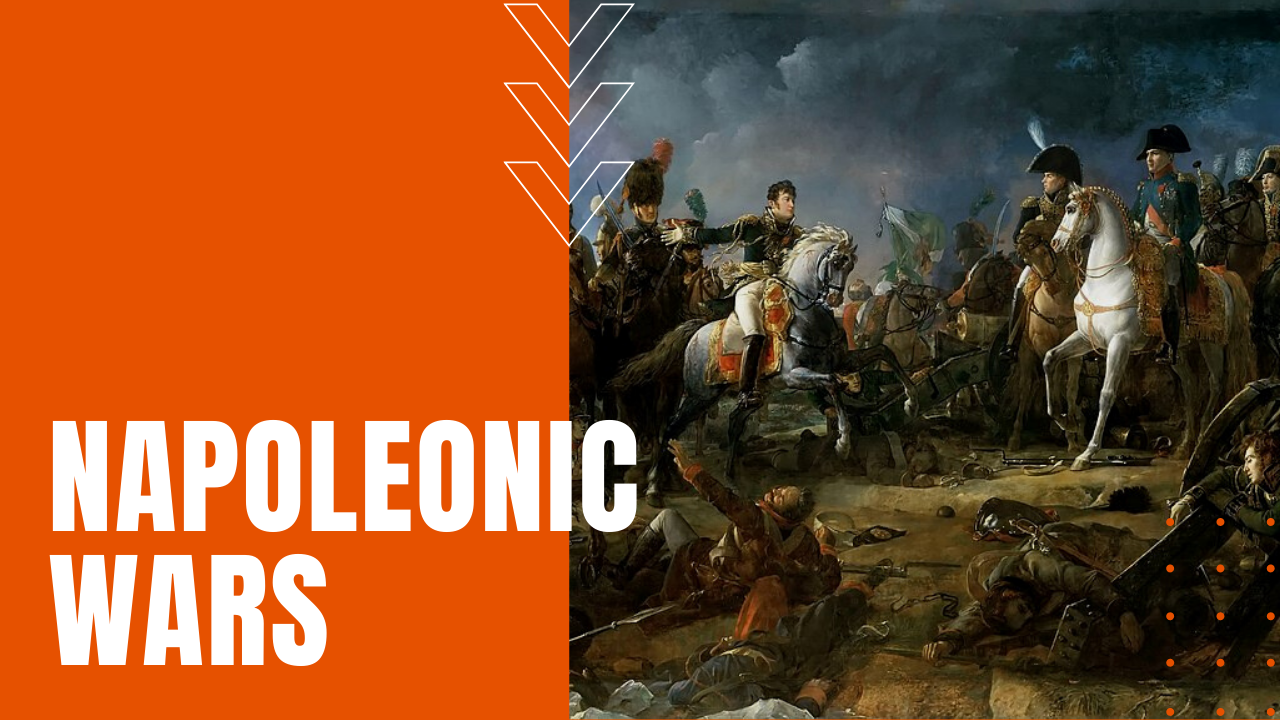Napoleonic Wars

After the French Revolution witnessed the execution of King Louis the 16th and the dismantling of the French monarchy, Napoleon Bonaparte crowned himself Emperor of France on December 2nd, 1804, reinstating a form of nobility that the French had fought so hard to undo.
Considered by some historians as a continuation of the unresolved conflicts sparked by the French Revolution, the Napoleonic Wars pitted the French Empire and her allies against a fluctuating array of European states in five conflicts known as coalitions intended to defeat Napoleon’s expansionist aggressions.
When Were the Napoleonic Wars?
Napoleon’s plans to invade Britain ended in his defeat against a joint Franco-Spanish navy in the Battle of Trafalgar on October 21st, 1805, while in December of that same year, Napoleon defeated a Russo-Austrian army at Austerlitz, which historians consider his greatest victory during the Third Coalition.
In an effort to thwart France’s increasing power grab, Prussia led the creation of the Fourth Coalition with Russia, Saxony and Sweden in October of 1806, followed by the Prussian’s defeat at Jena and the Russians at Friedland. An uneasy peace was to follow, until the Fifth Coalition of 1809 witnessed an Austrian victory at Aspern-Essling, followed by their bloody defeat at Wagram.
Napoleon’s expansionist fortunes turned against him when he launched a massive invasion of Russia in 1812, after the Russians repeatedly violated Napoleon’s Continental System, designed to block trade with Britain, resulting in the near destruction of Napoleon’s Grand Army, which saw the deaths of some half a million French soldiers in a disease-ridden winter retreat from Moscow.
At the same time, Napoleon’s earlier 1807 invasion of Portugal—Britain’s sole ally in continental Europe—saw six years of bloody fighting by allies Spain, Portugal and Britain, resulting in the French expulsion from Iberia in 1814.
Who Won the Napoleonic Wars?
Encouraged by both defeats, a Sixth Coalition was formed between Austria, Prussia, Sweden and Russia, resulting in Napoleon’s decisive defeat at Leipzig in October of 1813, leading to the invasion of France in 1814, which forced Napoleon to abdicate the thrown in April of that same year.
Exiled to the Mediterranean island of Elba, on February 26th, 1815, Napoleon escaped the island and sailed for France with more than 1,000 loyalists, and after Bourbon King Louis the 18th fled the country, Napoleon began his Hundred Days Campaign of continued aggression.
A Seventh Coalition soon formed against him, resulting in his defeat at Waterloo in June of 1815, returning Napoleon to exile, this time on island of Saint Helena, where he died six years later from stomach cancer. In all, the Napoleonic Wars saw the deaths of some six million soldiers and civilians, resulting—for a time, anyway—in Napoleon’s domination of most of Europe, a feat not witnessed since the fall of the western Roman Empire.
